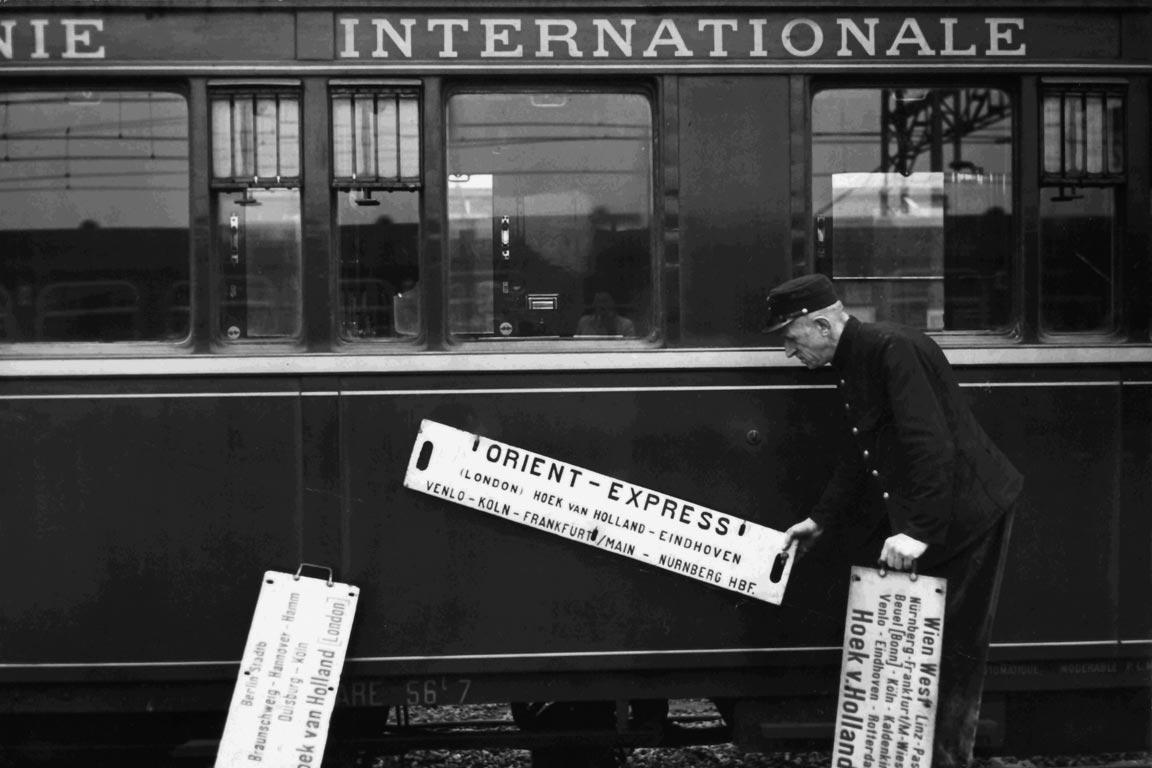Post-Brexit travel: Historic Hook of Holland railway station downgraded to Rotterdam Metro
From 1 April, trains are replaced by buses for the summer, and in September the station becomes a far-flung stop on the Rotterdam Metro

Your support helps us to tell the story
From reproductive rights to climate change to Big Tech, The Independent is on the ground when the story is developing. Whether it's investigating the financials of Elon Musk's pro-Trump PAC or producing our latest documentary, 'The A Word', which shines a light on the American women fighting for reproductive rights, we know how important it is to parse out the facts from the messaging.
At such a critical moment in US history, we need reporters on the ground. Your donation allows us to keep sending journalists to speak to both sides of the story.
The Independent is trusted by Americans across the entire political spectrum. And unlike many other quality news outlets, we choose not to lock Americans out of our reporting and analysis with paywalls. We believe quality journalism should be available to everyone, paid for by those who can afford it.
Your support makes all the difference.Budget flying has claimed another victim. Hook of Holland, one of the grandest stations in Europe, is to be re-born as a stop on the Rotterdam Metro.
Hoek van Holland Haven, as the station is officially known, opened in 1893. At the time, the Thomas Cook journal, Cook’s Excursionist, reported excitedly: “The Great Eastern Railway Company’s new route to the Continent from Harwich, via the Hook of Holland, is now open.
“New and powerful steamers have been constructed for this service; and as travellers for Holland, Germany, &c., landing at the ‘Hook,’ will be spared the passage up the Maas, a considerable saving of time will be effected.”
For most of the next century, the international rail-sea interchange flourished. Direct trains ran from its extensive platforms to Berlin and Copenhagen, while the luxury Rheingold ran beside western Europe's mightiest river via Cologne and Baden-Baden to Basel.
In 1933, Patrick Leigh Fermor began his journey across Europe to Constantinople (Istanbul) from Hook of Holland. He later described it in A Time of Gifts.
After the Second World War, Hook of Holland was a starting point for the Orient Express. Even in the 1970s and 80s, transcontinental trains lined up to receive passengers from the Harwich ferry and take them on to Copenhagen, Berlin and Warsaw.
The final Warszawa Express to the Polish capital departed exactly 100 years after the station opened.
Since 1993, services have dwindled still further, as the number of budget flights has increased. The Boat Train to Amsterdam ceased a decade ago, when Stena Line's high-speed catamaran from Harwich was withdrawn; conventional ferries still ply the route.
In 2014, the writers Nicky Gardner and Susanne Kries described the westbound journey via the now-forlorn station: “There is a sort of melancholy born of leaving the Continent without having properly said one's farewells. There is no such thing as a grand exit via Hoek van Holland.”
The station will close for the summer from 1 April, with trains replaced by buses for five months. When the line re-opens in September, the once-mighty Continental rail terminus will be relegated to part of the Metro system for the second-biggest city in the Netherlands
Until work begins on 1 April, there is a half-hourly rail service to Rotterdam. Inge Rijgersberg of Dutch Railways said: "The last train will be a celebratory ride with guests and entertainment."
The new European Rail Timetable reports: “A special bus service will be in operation with a combination of fast and stopping services.
“On completion, the route will operate as an extension of existing Metro lines A and B.”
The timetable’s editor, Chris Woodcock, said: “It will be interesting to see if those lengthy old station platforms will be completely wiped away. Sad, in a way, but the railway must adapt to modern travel needs.“
Mark Smith, who runs the Seat61.com international rail website, said passengers would see an improvement once the work is completed: ”The 'light rail' Metro will become a more frequent service than the 'heavy rail' train, with one simple change at Schiedam all that is necessary to reach Den Haag or Amsterdam, just as now. Or one change at Rotterdam Alexanderplatz to reach Utrecht for ICE trains to Cologne.
"I still love travelling London to Amsterdam via the Harwich-Hoek night service, with dinner in the ship's restaurant and a night in a private en-suite cabin with satellite TV. Such a relaxed way to get there, as time-effective as flying and saves a hotel bill."
The Rail and Sail tickets sold by Stena Line ferries for journeys between London or stations in East Anglia to Amsterdam or any other Dutch station from £55 will continue to be available, and will be valid on the temporary buses and later the Metro. InterRail passes will also be accepted.
Join our commenting forum
Join thought-provoking conversations, follow other Independent readers and see their replies
Comments